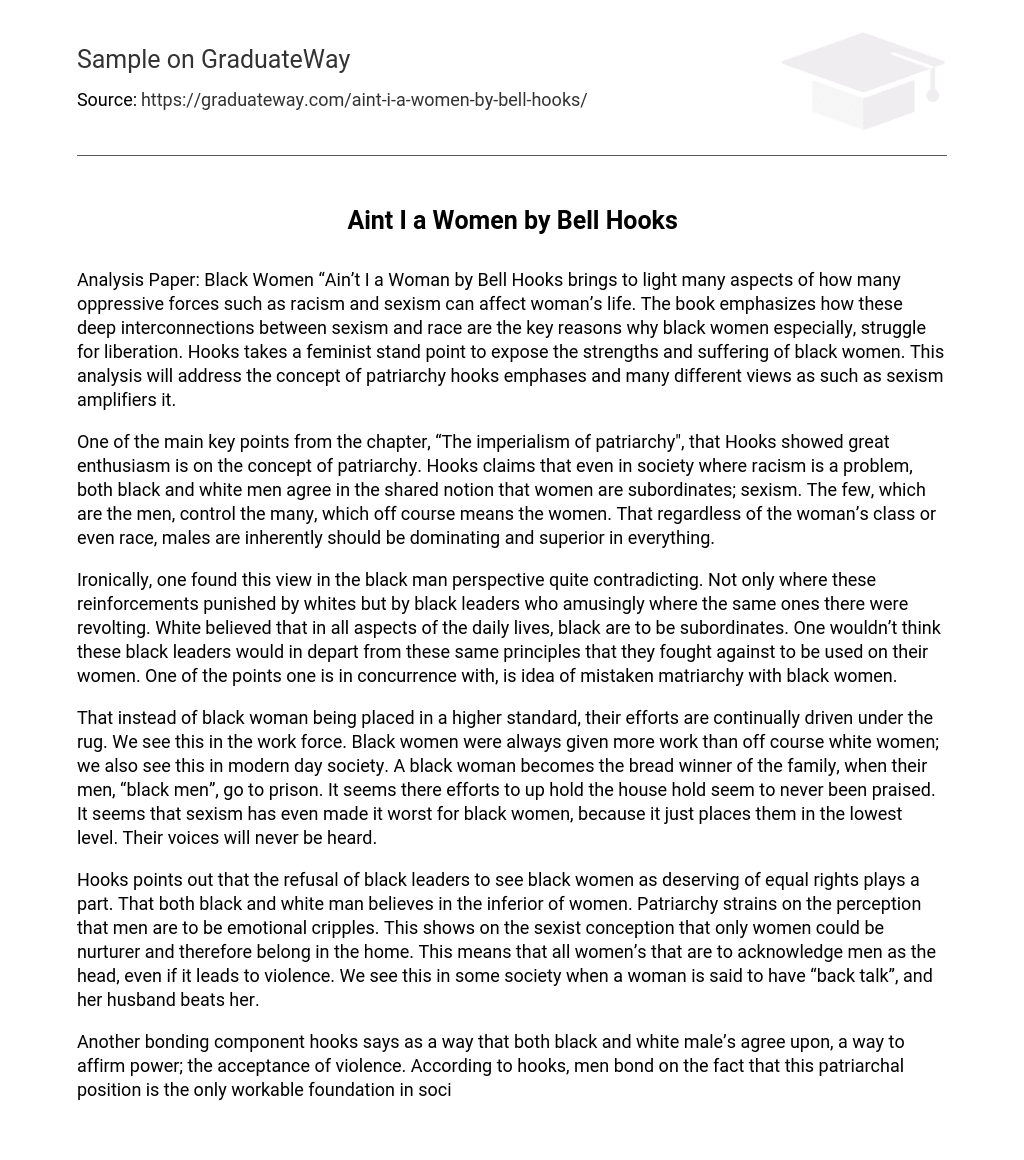Analysis Paper: Black Women “Ain’t I a Woman by Bell Hooks brings to light many aspects of how many oppressive forces such as racism and sexism can affect woman’s life. The book emphasizes how these deep interconnections between sexism and race are the key reasons why black women especially, struggle for liberation. Hooks takes a feminist stand point to expose the strengths and suffering of black women. This analysis will address the concept of patriarchy hooks emphases and many different views as such as sexism amplifiers it.
One of the main key points from the chapter, “The imperialism of patriarchy”, that Hooks showed great enthusiasm is on the concept of patriarchy. Hooks claims that even in society where racism is a problem, both black and white men agree in the shared notion that women are subordinates; sexism. The few, which are the men, control the many, which off course means the women. That regardless of the woman’s class or even race, males are inherently should be dominating and superior in everything.
Ironically, one found this view in the black man perspective quite contradicting. Not only where these reinforcements punished by whites but by black leaders who amusingly where the same ones there were revolting. White believed that in all aspects of the daily lives, black are to be subordinates. One wouldn’t think these black leaders would in depart from these same principles that they fought against to be used on their women. One of the points one is in concurrence with, is idea of mistaken matriarchy with black women.
That instead of black woman being placed in a higher standard, their efforts are continually driven under the rug. We see this in the work force. Black women were always given more work than off course white women; we also see this in modern day society. A black woman becomes the bread winner of the family, when their men, “black men”, go to prison. It seems there efforts to up hold the house hold seem to never been praised. It seems that sexism has even made it worst for black women, because it just places them in the lowest level. Their voices will never be heard.
Hooks points out that the refusal of black leaders to see black women as deserving of equal rights plays a part. That both black and white man believes in the inferior of women. Patriarchy strains on the perception that men are to be emotional cripples. This shows on the sexist conception that only women could be nurturer and therefore belong in the home. This means that all women’s that are to acknowledge men as the head, even if it leads to violence. We see this in some society when a woman is said to have “back talk”, and her husband beats her.
Another bonding component hooks says as a way that both black and white male’s agree upon, a way to affirm power; the acceptance of violence. According to hooks, men bond on the fact that this patriarchal position is the only workable foundation in society. This is the only way that political regimes can exist thought-out the world. To fight racism Hook addresses this control over women in the patriachial system has to be dismissed. That men will continually fight for control, and in a patriarchal world control is a key. To be truly free there has to be a united front.





